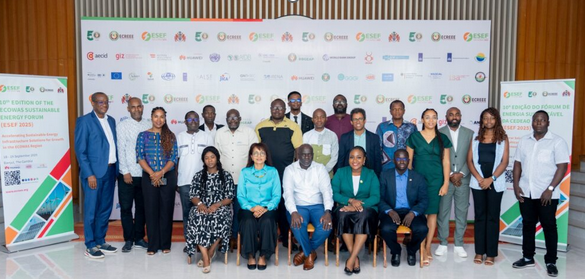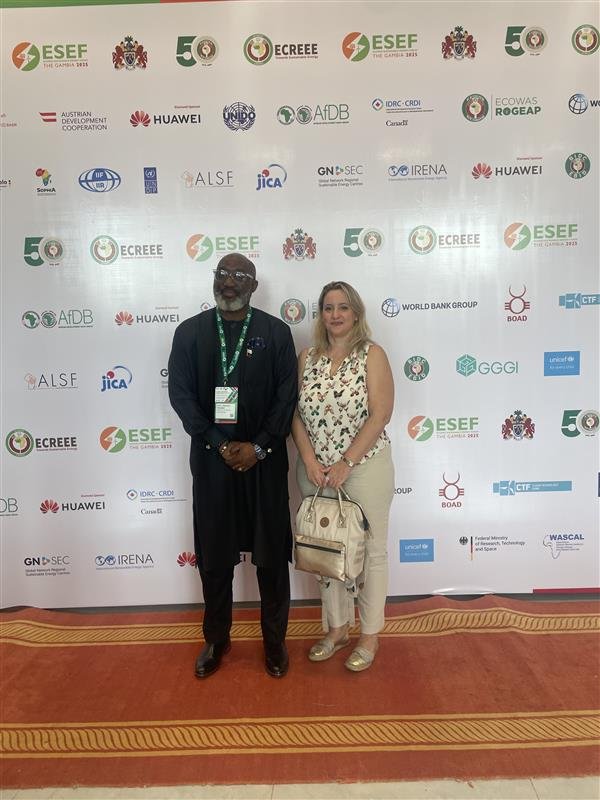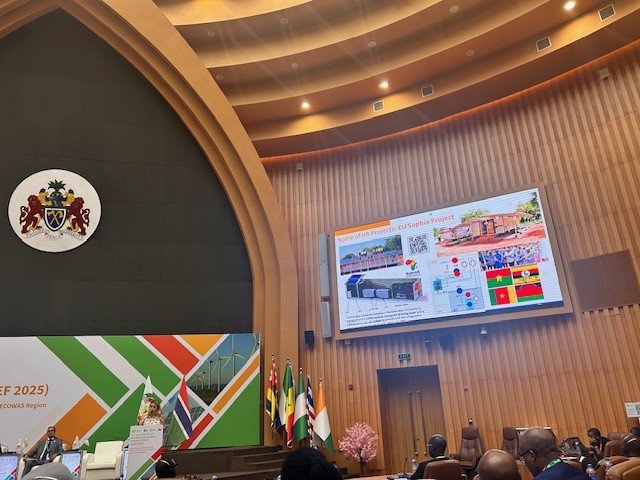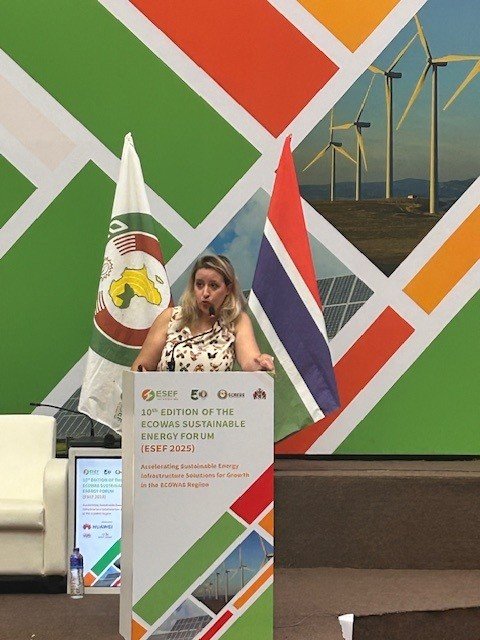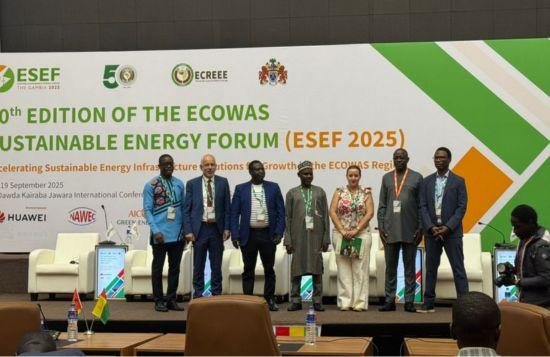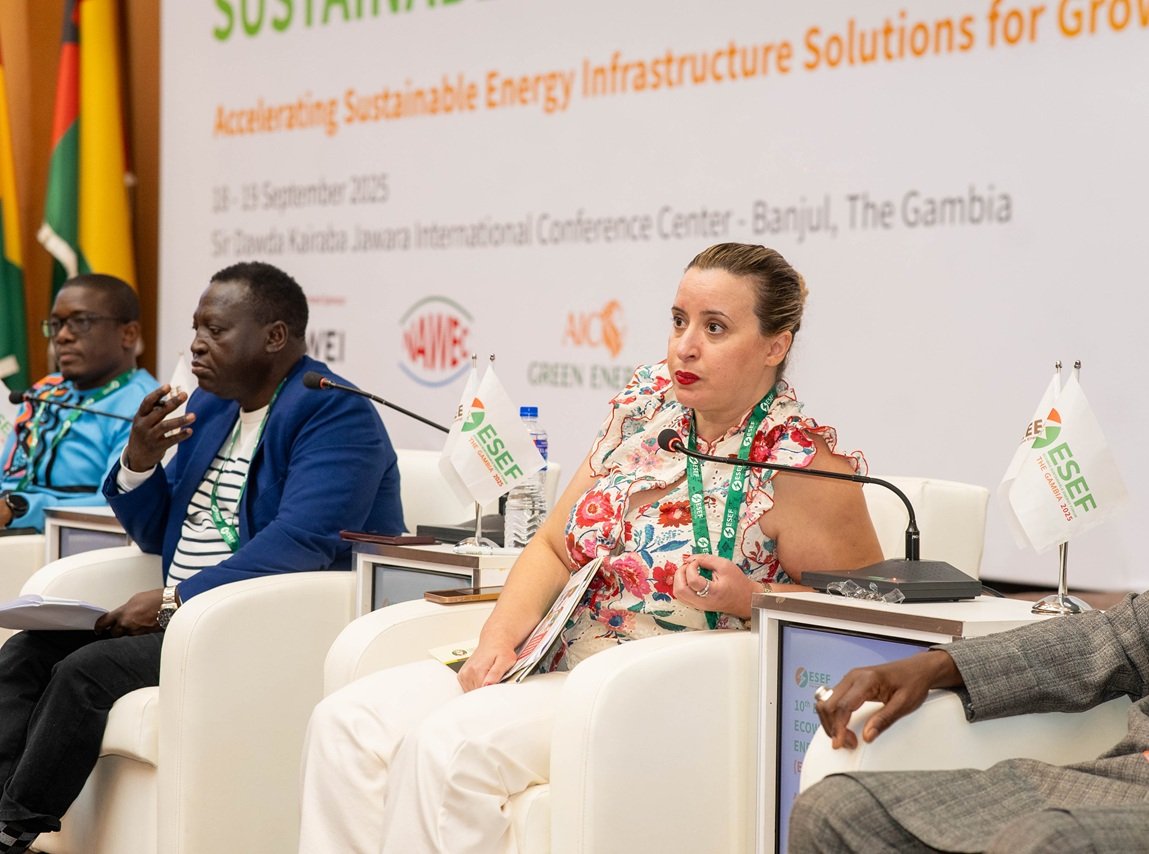The International Institute of Refrigeration (IIR) participated in the 10th ECOWAS Sustainable Energy Forum (ESEF 2025), held from September 25 at the Sir Dawda Kairaba Jawara International Conference Center in the Gambia. The event marked the 50th anniversary of ECOWAS and the 15th anniversary of ECREEE, gathering regional leaders, experts, and stakeholders to accelerate West Africa’s sustainable energy transition.
IIR Director General Dr. Yosr Allouche and Ina Colombo, Head of EU and International Programmes, joined several high-level plenary sessions. On Day 1, during the panel "Energy Efficiency for Sustainable Livelihoods in Africa", Dr. Allouche called on ECOWAS governments to implement clear roadmaps for phasing down high-GWP refrigerants, in line with the Kigali Amendment but adapted to local capacities. She advocated for the adoption of minimum energy performance standards (MEPS), harmonised safety regulations, and stronger technician training to advance the use of low-GWP refrigeration technologies.
Dr. Allouche emphasised the critical role of energy-efficient and clean refrigeration solutions in reducing post-harvest food losses, improving farmers’ incomes, and enhancing export competitiveness. She noted that technologies are already available to help Africa leapfrog into clean cold chain systems, provided they are supported by suitable financial mechanisms and business models.
On Day 2, during the session "Powering Food Systems in West Africa", Dr. Allouche highlighted that refrigeration and cold chains account for about 20% of global electricity use and 7.5% of CO₂ emissions. She stressed that expanding sustainable cold chains could significantly reduce food loss, prevent vaccine spoilage, and cut emissions. Projects like SophiA and INDEE+ were presented as examples of effective refrigeration initiatives in Africa.
Ahead of the main forum, a special session on Climate-Resilient Cooling, Climate Change, and Gender showcased EU-funded projects including SOPHIA, AGRICOOL, and EMERGE. These initiatives presented pilot technologies such as solar-powered smart cold rooms, agrivoltaic systems, and tools supporting clean energy and resource planning in countries like Cabo Verde, Morocco, and Mozambique.
The IIR also reported establishing new contacts and commitments for future cooperation with potential and existing member countries.
